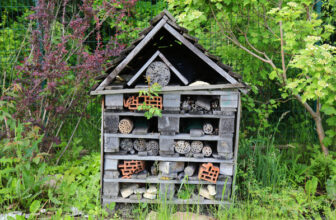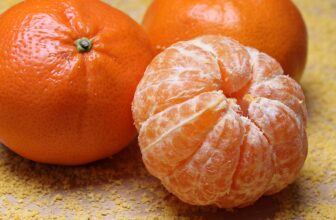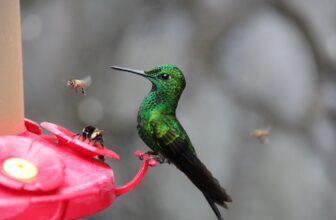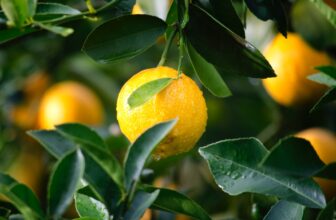
Table of Contents
Composting is a way of recycling organic waste into a nutrient-rich soil amendment that can be used to grow healthy plants and vegetables. It’s a great way to reduce waste, improve soil health, and save money on fertilizers. There are different types of compost that you can make, depending on the materials you have available and the needs of your plants.
If you are looking to learn about composting and the different types of compost, you have come to the right place. Keep reading to find out about the benefits and the different types of compost you could use for your plants and garden to increase the yield.
Benefits of Compost
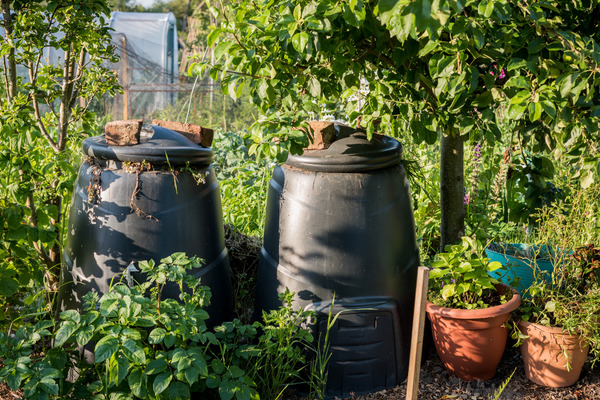
Compost is important for your garden because it provides several benefits to the soil and plants. Using compost is an excellent way to improve the health and productivity of your garden while also reducing waste and promoting environmental sustainability. Some of the benefits of using compost would be:
1. Provides Nutrients
Compost is rich in organic matter and nutrients that are essential for plant growth, including nitrogen, phosphorus, and potassium. When added to the soil, compost helps to improve soil fertility and provides a slow-release source of nutrients for plants.
2. Improves Soil Structure
Compost helps to improve soil structure by increasing its water-holding capacity, improving soil aeration, and creating a crumbly texture that makes it easier for plant roots to grow.
3. Enhances Soil Biodiversity
Compost contains a wide range of microorganisms, such as bacteria and fungi, that help to break down organic matter and make nutrients available to plants. These microorganisms also help to promote healthy soil and plant growth by improving soil structure and preventing plant diseases.
4. Reduces Waste
Composting is a great way to reduce organic waste, such as food scraps and yard waste, and turn it into a valuable resource for your garden.
5. Saves Money
Using compost instead of synthetic fertilizers can save money in the long run, as compost is a low-cost or free alternative that provides several benefits to the soil and plants.
Types of Compost
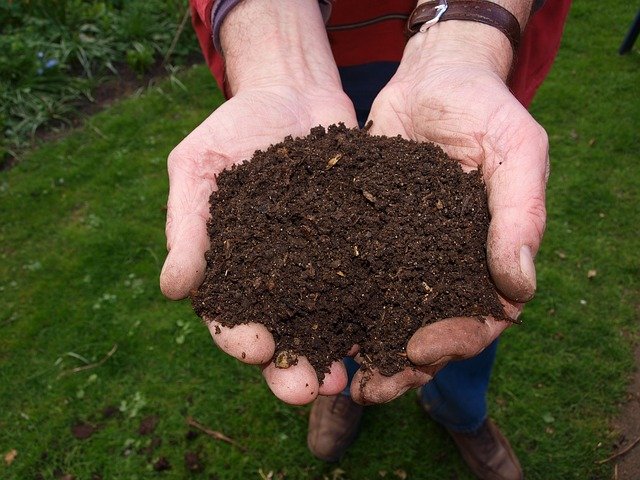
Manure Compost
Manure compost is made from animal manure, such as cow, horse, or chicken manure. It’s quite popular with gardeners because it’s rich in nutrients and can help to improve soil fertility.
To make manure compost, you will need to collect manure and then mix it with other organic materials, such as straw, leaves, or sawdust, to help balance the carbon-to-nitrogen ratio and improve the composting process. This mixture needs to be composted for several weeks or months and during this period, it’s necessary to regularly turn the compost mixture to ensure there is even decomposition and to prevent the growth of harmful bacteria.
If you are keen on trying out manure compost in your garden, here are some pros and cons to consider:
Pros of Using Manure Compost
a) High In Nutrients
Manure compost is rich in nitrogen, phosphorus, and potassium, which are essential nutrients for plant growth.
b) Improves Soil Structure
Manure compost can help to improve soil structure by increasing its water-holding capacity, improving soil aeration, and creating a crumbly texture that makes it easier for plant roots to grow.
c) Promotes Soil Biodiversity
Manure compost contains a range of microorganisms that help to break down organic matter and make nutrients available to plants. These microorganisms can also help to promote healthy soil and plant growth by improving soil structure and preventing plant diseases.
d) Low-Cost
If you have access to animal manure, making your own manure compost can be a low-cost way to improve soil fertility and reduce waste.
Cons of Using Manure Compost
a) Can Be High in Salts
If manure is not properly aged or cured, it can be high in salts, which can damage plant roots and reduce plant growth.
b) Risk Of Contamination
Manure compost can contain harmful bacteria, such as E. coli and Salmonella, which can pose a health risk to humans and animals if not properly handled.
c) Unpleasant Odor
Manure compost can have an unpleasant odor, especially during the early stages of composting.
Considering the pros and cons, manure compost remains a great way to improve soil fertility and promote healthy plant growth. Remember to use it properly and to take necessary precautions to reduce the risk of contamination.
Mushroom Compost

Mushroom compost is also known as mushroom soil or mushroom substrate. It’s a type of organic fertilizer that’s produced from the waste materials of mushroom cultivation. It’s usually a dark, nutrient-rich soil-like material and is great at improving soil quality and supporting plant growth.
Mushroom compost can be easily made by mixing organic materials such as straw, hay, corn cobs, poultry litter, and other agricultural waste products with mushroom spores. Usually this mixture needs to be pasteurized to kill any harmful microorganisms and to encourage the growth of beneficial bacteria and fungi.
The process of mushroom cultivation can take anywhere from 3 to 6 weeks. Once cultivated, the spent mushroom substrate is harvested and sold as compost.
Pros of Using Mushroom Compost
a) Rich In Nutrients
Mushroom compost is an excellent source of organic matter, minerals, and nutrients that are essential for plant growth, such as nitrogen, phosphorus, and potassium.
b) Improves Soil Quality
The organic matter in mushroom compost helps to improve soil structure, water retention, and aeration, making it an ideal soil amendment for gardeners and farmers.
c) Reduces Waste
Mushroom compost is made from recycled waste materials, such as agricultural byproducts and food waste, which helps to reduce the amount of waste sent to landfills.
d) Suppresses Diseases
Mushroom compost contains beneficial microorganisms that can help to suppress harmful pathogens in the soil, reducing the risk of plant diseases.
Cons of Using Mushroom Compost
a) High Salt Content
Mushroom compost can have a high salt content, which can be harmful to some plants, especially if used in large quantities or in areas with poor drainage.
b) May Contain Pathogens
While the pasteurization process is designed to kill harmful microorganisms, there’s still a risk that the compost could contain pathogens that could infect plants.
c) Can Be Expensive
Mushroom compost can be more expensive than other types of organic fertilizers due to the cost of production and the high demand for the product.
d) Not Suitable for All Plants
Some plants may be sensitive to the high nutrient content in mushroom compost and may require a more balanced fertilizer. On the other hand, there might be plants that may be more prone to fungal diseases, which could be exacerbated using mushroom compost.
Vermicomposting

Vermicompost, also known as worm castings, is produced from the waste materials of earthworms. It’s made by feeding organic materials such as food waste, garden waste, and animal manure to earthworms, which then digest the material and excrete nutrient-rich castings. The castings are collected, dried, and screened to create vermicompost.
Pros of Using Vermicompost
a) Rich In Nutrients
Vermicompost is rich in nutrients, has a concentrated source of nitrogen, phosphorus, and potassium, as well as other micronutrients and trace elements that are necessary for healthy plant development. These nutrients are more readily available to plants compared to other types of organic fertilizers, as they are in a form that’s easily absorbed by plant roots.
b) Improves Soil Quality
The organic matter in vermicompost improves soil structure by increasing water retention, binds soil particles together and suppresses plant diseases.
c) Promotes Plant Growth
Vermicompost contains beneficial microorganisms that can help to promote plant growth and improve soil fertility.
d) Reduces Waste
Vermicomposting is a sustainable way to recycle organic waste materials by reducing the amount of waste that goes to landfills.
Cons of Using Vermicompost
e) Requires Maintenance
Vermicomposting requires careful management of the earthworms and their environment to ensure optimal conditions for the worms to thrive and produce high-quality compost.
f) Can Be Expensive
Vermicomposting requires an initial investment in earthworms and equipment, which can be costly.
g) May Attract Pests
The organic matter in vermicompost can attract pests, such as fruit flies and ants, which can be a nuisance.
h) Not Suitable for All Plants
Once again, the high concentration of nutrients in vermicomposting isn’t suitable for all plants.
Vegan Compost
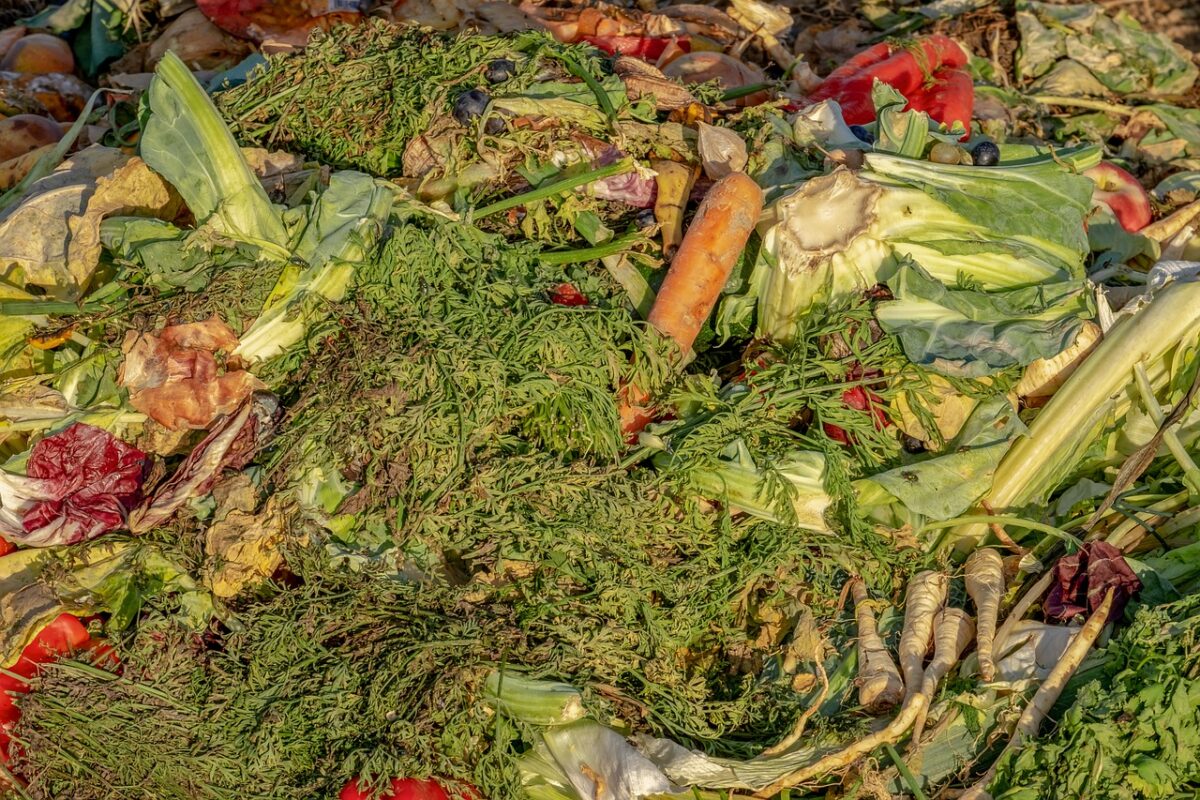
Vegan compost is where decomposed plants are recycled without disturbing the surroundings in any way. A homemade vegan compost can be created by mixing vegetable waste, weeds, grass cuttings, dried plants, pieces of wood, leaves, and coffee grounds. Vegan Compost made for selling excludes utilizing peat or kinds of manure.
Pros of Using Vegan Compost
a) Reduces Waste
This approach to composting supports a more sustainable and environmentally friendly approach to waste management. It reuses waste from agriculture without causing any harm to the surroundings.
b) No Bad Odors
Vegan compost can have a milder odor when compared to other types of compost as it doesn’t have any animal products or by-products.
c) Improves Soil Quality
It also enriches the soil with nutrients including nitrogen, phosphorus, potassium, and micronutrients, that are essential for healthy plant growth.
Cons of Using Vegan Compost
a) Lower Nutrient Content
Compared to animal-based compost, vegan compost may have lower nitrogen content, which can affect plant growth if not properly balanced with other nutrients.
b) Longer Composting Time
Plant-based materials can take longer to break down and compost than animal-based materials, which may require a longer composting time.
c) Imbalanced Carbon-To-Nitrogen Ratio
Some plant-based materials may have a high carbon-to-nitrogen ratio, which can slow down the composting process and affect the nutrient balance in the final compost.
d) Limited Availability
Vegan compost may be less widely available compared to animal-based compost, which may make it more difficult to source.
e) Variability In Quality
The nutrient content and quality of vegan compost can vary depending on the types of plant-based materials used and the composting process used.
Organic Compost
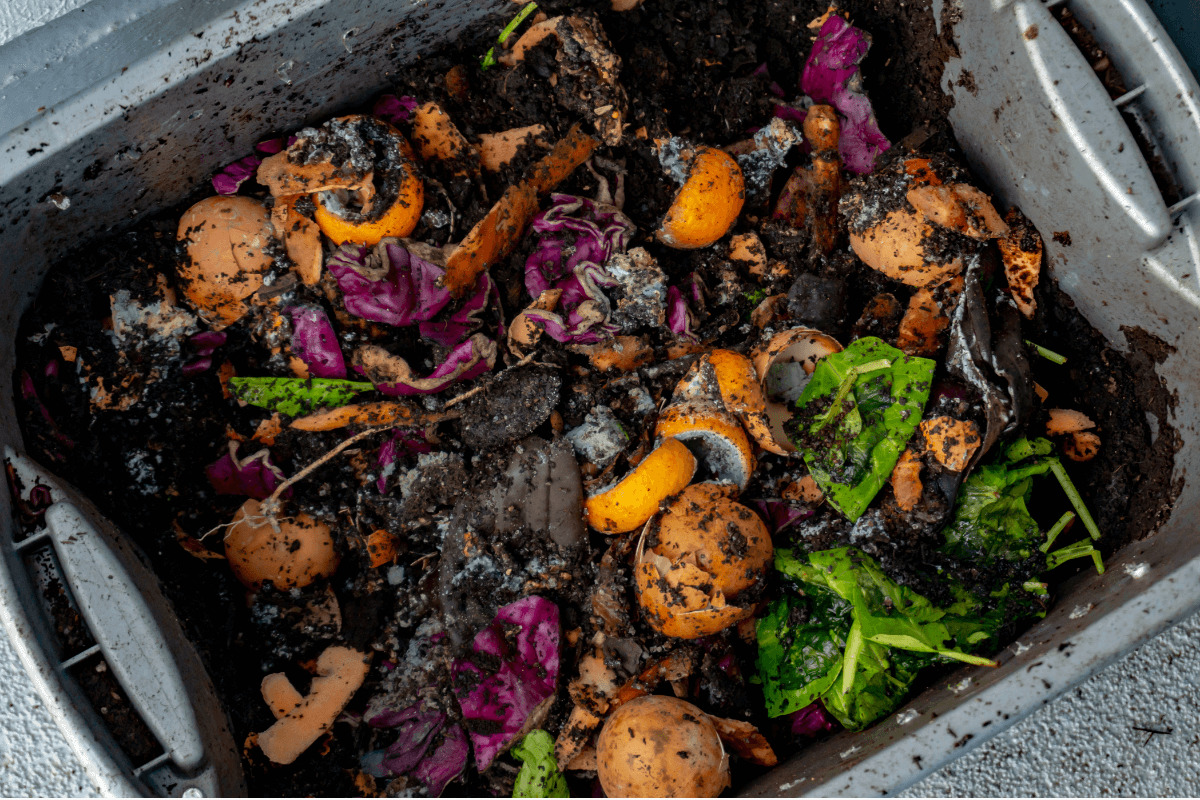
Organic compost is made from organic materials that are free from synthetic chemicals, pesticides, and fertilizers. This type of composting relies on natural processes to break down organic matter.
The US Department of Agriculture (USDA) requires that organic compost be produced in a way that promotes soil health, enhances biodiversity, and supports ecological balance. This means that when making organic compost, it’s important to use practices such as crop rotation, cover cropping, and the use of compost tea to promote beneficial microorganisms in the soil.
Organic composting is a valuable tool for promoting sustainable agriculture and reducing waste. While it may have some drawbacks, the benefits of organic composting far outweigh the cons, making it a popular choice for gardeners and farmers alike.
Pros of Using Organic Compost
a) Improves Soil Health
Organic compost helps to improve soil health by adding beneficial microorganisms and organic matter to the soil. This enhances soil structure, texture, and fertility, promoting healthy plant growth.
b) Reduces Waste
Organic composting helps to divert organic waste from landfills, reducing greenhouse gas emissions and supporting more sustainable waste management practices. It’s a preferred compost today.
c) Sustainable
Organic composting is a sustainable and environmentally friendly way to manage organic waste, reducing the need for synthetic fertilizers and promoting healthy ecosystems.
Cons of Using Organic Compost
a) Longer Composting Time
Organic composting may take longer than other types of composting, as it relies on natural processes to break down organic matter.
b) Variability In Quality
The nutrient content and quality of organic compost can vary depending on the types of materials used and the composting process used, which may affect its effectiveness as a soil amendment.
c) Limited Availability
Organic compost may be less widely available than other types of compost, which may make it more difficult to source.
Other Types of Compost That You Can Use in Your Garden
| Compost Type | Description |
| Neutral Compost | Neutral Compost is compost where decomposition is completed. The compost should have a pH level in the range of 6 and 8. It can be a bit alkaline or neutral. |
| Acidic Compost | Acidic compost is a type of compost that has a low pH level, usually below 7.0, which makes it suitable for acid-loving plants such as blueberries, azaleas, and rhododendrons. |
| Green Compost | Made from fresh, green materials such as grass clippings, kitchen scraps, and garden waste. High in nitrogen, green compost is used to add fertility to the soil. Green compost is like vegan compost but may vary in nutrient levels. |
| Brown Compost | Made from dry, brown materials such as leaves, straw, and sawdust. High in carbon, brown compost is used to improve soil structure and aeration. |
| Bokashi Compost | Made using a specific type of fermentation process with the help of beneficial microorganisms, typically using food scraps, coffee grounds and other kitchen waste. Bokashi compost produces a high-nutrient compost tea that can be used as a liquid fertilizer for plants. |
| Hot Compost | Made by piling up organic materials and regularly turning them to provide oxygen and heat. Hot composting is a faster method of composting and can be used to break down tougher materials. |
| Cold Compost | Made by layering organic materials and letting them decompose over time. Cold composting is a slower method of composting and is suitable for small scale gardens and households. |
| Sheet Compost | A method of composting where organic materials are spread out in a thin layer and left to decompose over time. This method is often used in vegetable gardens, orchards, and other agricultural settings. |
| Kitchen Compost | This type of compost is made from vegetable and fruit scraps, coffee grounds, tea bags, eggshells, and other organic waste produced in the kitchen. It’s typically small in scale and can be made in a big or small container. |
| Yard Waste Compost | This type of compost is made from leaves, grass clippings, and other yard waste. It’s usually larger in scale and can be made in a pile or bin. |
| Municipal Compost | This type of compost is made by municipal waste management systems and is typically made from a combination of yard waste, food waste, and other organic materials. It’s often available for purchase and can be used to fertilize plants. |
Wrapping Up
When choosing a type of compost, it’s important to consider the materials you have available, the scale of your composting operation, and the needs of your plants or garden. Some types of compost may be better suited for certain plants or soil types. Consider the many types of compost and their benefits to your garden when you are looking for the right compost to improve soil quality and support the growth in your garden.



